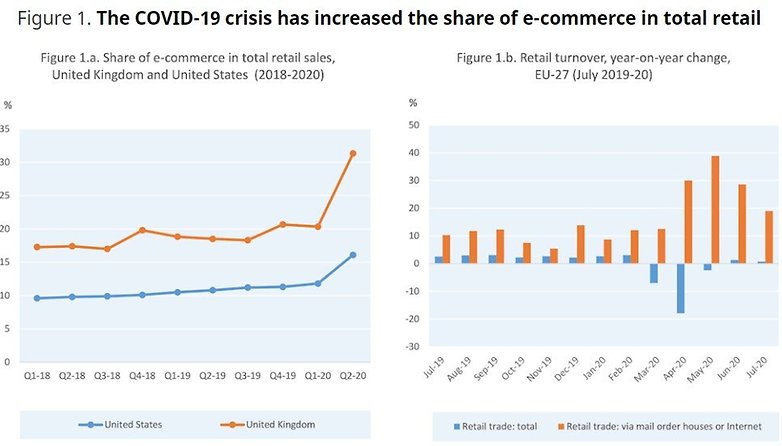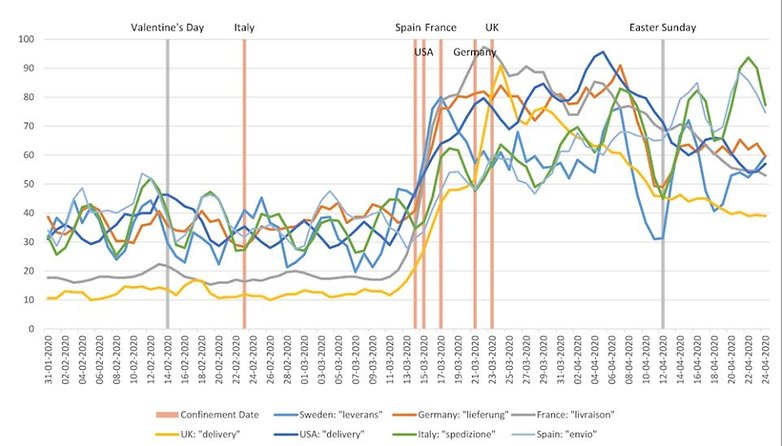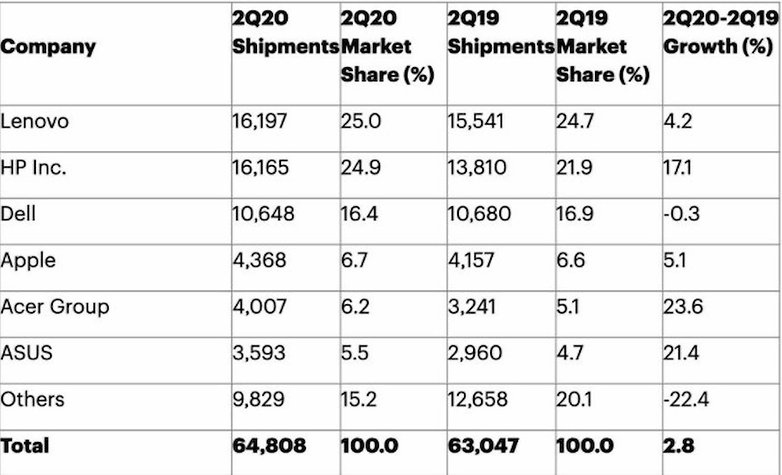Fake promos and lockdowns: why Black Friday 2020 is high stakes

"Black Friday, Cyber Monday, the best deals, deals, good deals, real discounts, iPhone deals, buy, buy, buy! More than ever before, Black Friday 2020 will be special and high-stakes this year. Faced with a growing need or desire to equip oneself with the latest consumer electronics devices during lockdown, there are pitfalls associated with this commercial "party" that could end up being all the more detrimental.
Even more shameless would be the ironic listing of aggressive keywords I just mentioned, the dubious business practices of e-commerce retailers during Black Friday are all the more pronounced this year, when purchases of consumer electronics goods and online shopping sprees as a whole have soared since the beginning of the coronavirus crisis.
Black Friday 2020 wants to ride the online shopping wave
According to Fevad's quarterly results that were presented on Tuesday, 15 September, Internet sales rose by 5.3% in Q2 2020 (compared with 12.1% in Q2 2019) for a turnover of €25.9 ($30.81) billion. If the sales of services have dropped sharply, the sales figures of products have practically exploded (+45%).
According to the same report, online purchases made on branded sites (Amazon and its ilk) have jumped by a broad margin this quarter with an increase of +83%, seeing a doubling of online sales.
This is a trend that is obviously not confined to the nation of France. According to the OECD, e-commerce has experienced a real boom in the United States and the United Kingdom since early 2020, which also happened to be the beginning of the health crisis sparked by Covid-19.

However, this boom was preceded by heavy losses in the period of March-April 2020, which was at the start of the first global lockdown measures and the closure of non-essential businesses in several countries. Since then, user interest in purchasing goods and services remotely has been increasing steadily, as evidenced by the Google Search data illustrated by the OECD in the graph below.

These figures may seem surprising at first glance, especially for consumer electronics products, when you take into consideration that 2020 has been a bleak year for smartphone manufacturers. The market, already in decline year after year before the coronavirus crisis, has suffered a lot with a 17% overall drop in worldwide smartphone sales, according to Counterpoint Research.
But this decline can be explained mainly by the shutdown of production lines in China, the decline in the number of units produced by each manufacturer, and the closure of physical stores. However, online purchases of consumer electronics products have increased since the first lockdown measures were taken.
In Germany, the same institute Counterpoint Research noted a 27% drop in smartphone sales in Q2 2020. But at the same time, Xiaomi sales have exploded by 250% compared to the same period in 2019 in our neighbouring country.
A need/desire to be properly equipped to cope with lockdown measures
Consumers increasingly need or want to renew their equipment and tech devices during the lockdown period. This is a trend that many NextPit readers have also pointed out to me in comments over the past few months.
During the first lockdown, it was no coincidence that subscriptions to Video On Demand (VOD) services such as Netflix or Disney+ and the consumption of video games exploded. Nor is it by chance that PC sales, a market that has historically been in perpetual crisis, have boomed exponentially as more and more employees switched to teleworking or working remotely.

More than a desire to properly equip oneself to entertain oneself by watching a film or a TV series when one is stuck at home, the renewed interest in consumer electronic products is also and above all, a need to face this new reality known as lockdown.
We use our devices more and more in many different ways. In April this year, the world even feared that network infrastructures would collapse with the Internet breaking under the stress faced by increases in speed and the number of simultaneous connections during the first lockdown period.
GAFAs and other tech giants also took steps to restrict their services in order to preserve global bandwidth. It's ridiculous when you think about it, but it does illustrate the importance of Black Friday 2020 for users in the midst of the technology arms race to remain entertained and work from home.
Hence the particularly decisive issue of hosting Black Friday this year. E-commerce merchants are well aware of this trend, and it would be foolish of them not to ride on the wave.
Fake promos have never been so unforgivable
However, every seasoned consumer knows that Black Friday is also a real opportunity for scams to surface, especially in the online realm. I will not dwell on the why or how of this sad observation since I have devoted a lengthy article on how to avoid different scams on Android.
To cut a long story short, Black Friday is not a sales period from a legal standpoint in France. However, merchants are only allowed to sell at a loss and therefore offer really low prices during the official winter and summer sales periods.
Logically, if a trader cannot sell at a loss during Black Friday, he/she must bend the rules to offer spectacular discounts of 50% or more on a product. Often, he/she will therefore inflate the reference price, cross it out with a lower price - a generally accepted practice at the end of a smartphone's life cycle, but a move that does not take into consideration the natural price drop and therefore, the actual reality of the market.
These practices are well known, too. Every year, consumer associations denounce them like the UFC Que Choisir in France which publishes a story after each Black Friday, featuring damning reports that show the extent of such false promotions. For example, the actual product share that was promoted on Black Friday 2018 represented only 8.3% of the 31,603 products tracked. Fewer than 10% of the products in this sample have seen an actual price drop.
After fake promos, comes a fake Black Friday
In France, the situation is all the more worrying as Black Friday 2020 would most probably be postponed to Friday, December 4, at the behest of physical stores having been forced to close during the lockdown. E-commerce giants such as Amazon and Fnac/Darty have accepted this postponement "out of solidarity" with small businesses, in exchange for a reopening of non-essential shops next week.
Certainly, the balance of power between online sellers and physical stores is grossly unbalanced, and I will surely devote an article to this matter over the next few days. But if Amazon and Fnac have officially stopped their advertising campaigns around Black Friday, they still try to find a workaround by offering promotions.
We will then be peppered with various advertisements, harking us "to prepare for Christmas in advance" on the Fnac homepage or a tab that redirects one to flash sales on the Amazon homepage. A "not Black Friday" before the pseudo-Black Friday can be rather misleading for the consumer. This is especially more pronounced since general and technology French sites are already bombarding your feeds with articles on the best Black Friday 2020 promotions.
According to a study by Strategy & PwC, one of the world's leading consulting firms, and was subsequently picked up by Le Figaro this week, nearly 56% of the 2,000 French people surveyed planned to make purchases during Black Friday 2020, setting aside a budget of approximately €245 ($292) (up by 5% compared to 2019).
It is therefore essential not to mislead these consumers, whose purchasing power remains particularly fragile in this economic situation, with false promotions and even more so a fake Black Friday that does not even happen on the actual day itself!
Also read also on NextPit:



